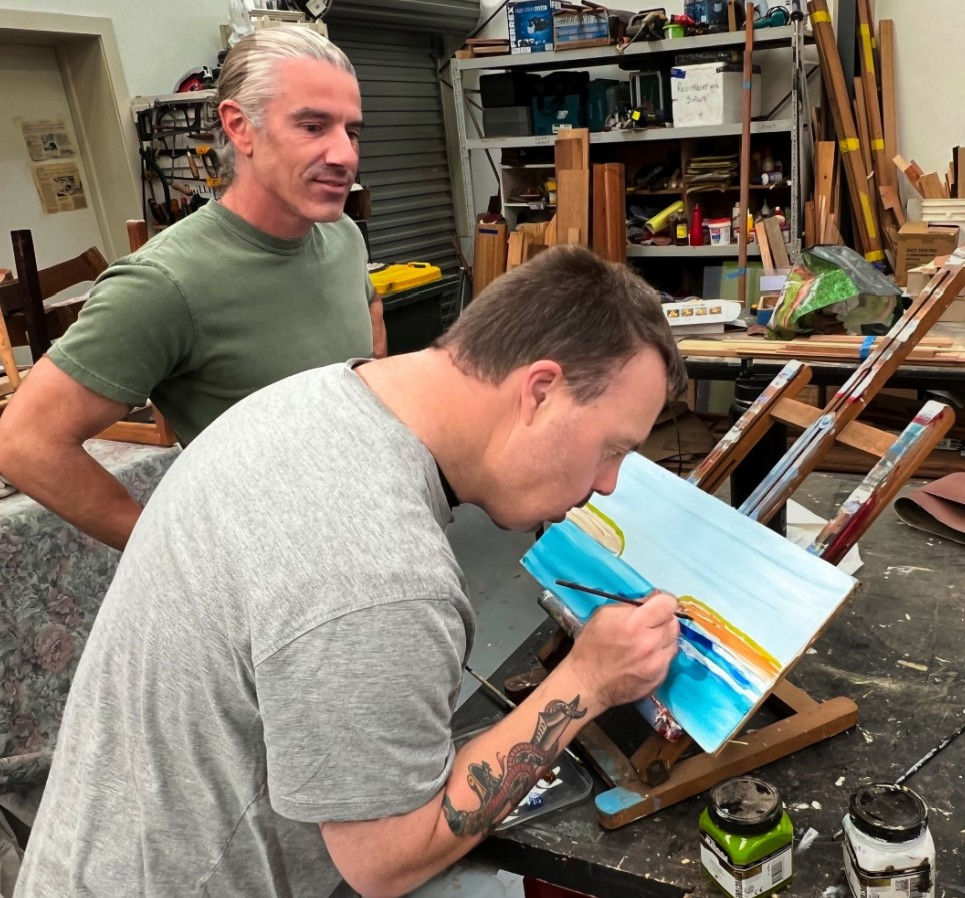More Than a Support Worker: When Caring Crosses a Line
- Ryan Tindal

- May 30, 2025
- 3 min read
Meet Maddy and Tessa
When Maddy, a 31-year-old disability support worker, first met Tessa, she felt something click.
Tessa was 24, cheeky and clever, with cerebral palsy and a wicked sense of humour. She loved iced lattes, makeup tutorials, and old episodes of Grey’s Anatomy. Maddy was into all those things too. Their weekly Friday shift — a combo of community access and companionship — quickly became the best part of Maddy’s week.
Tessa lived alone, had no close family, and limited social connections. She’d been through a lot: bullying in high school, a major health scare at 19, and a breakup that left her jaded about relationships. Maddy, too, had just come out of a messy breakup and was in a rough patch emotionally.
One afternoon, during their café visit, Maddy let her guard down.
"Honestly, Tess, you’re the only person I feel I can talk to right now. My ex has been awful."
Tessa beamed. "You can always talk to me. We’re basically besties now, right?"
Maddy laughed. She didn’t correct her.
Lines That Blur Without Warning
From then on, the dynamic shifted.
Tessa began texting Maddy late at night — "Are you okay?", "I miss you!", "Can we hang out Saturday too? I’m lonely."
Maddy tried to keep up the emotional support but found herself getting drained. Her work boundaries were melting. She started dreading her Friday shifts, but pushed through — telling herself she owed it to Tessa.
Then one week, Maddy took two sick days. She didn’t message Tessa back. She was exhausted.
Tessa didn’t take it well.
The Fallout of a Friendship That Wasn't Meant to Be
By the time Maddy returned the following week, Tessa had shut down.
No eye contact. No jokes. Her arms crossed, her voice clipped.
“I thought you actually cared,” she muttered.
Maddy sat beside her. “I do care, Tess. But I’m your support worker. That’s my role.”
Tessa’s face darkened. “Then why did you tell me all that stuff? Why did you let me think I mattered?”
Maddy had no answer.
Being Friendly vs. Being a Friend
This story doesn’t end in a meltdown or a headline-worthy incident. It ends with a silence, a disconnection and a breakdown in trust.
Tessa eventually asked for a new support worker. Maddy, shaken, asked to be reassigned. Neither did anything "wrong" — and yet, both ended up hurt.
What happened was a slow erosion of professional boundaries, fuelled by good intentions and emotional vulnerability.
So What’s the Lesson Here?
Support work is built on trust, not friendship.
Friendly? Yes. Warm, kind, and open? Always.
But a support worker’s role is to create a safe, predictable, and structured relationship — not one that mirrors personal friendships, which can be messy, unbalanced, and emotionally demanding.
Why the Line Matters
1. Participants Deserve Consistency, Not Confusion
When the dynamic shifts from “worker” to “friend,” expectations change. Cancellations feel personal. Boundaries feel like rejection. Emotional dependency grows — and can collapse hard.
2. It’s About Holding Space, Not Taking Space
Participants, especially those with limited social networks, often look to workers to fill emotional gaps. But the support worker’s job is to empower them to build their own connections — not become the connection.
3. Your Role Has an Ending
Every working relationship has a transition point — a move, a change in funding, a new role. When the relationship has blurred into friendship, those endings feel like abandonment, not professional shifts.
The Takeaway
Being a support worker isn’t about being cold or distant. It’s about holding the line with compassion. It's about being a safe, steady, respectful presence — even when it would feel good to "just be mates."
Because real care isn’t about being the closest person in someone’s life — it’s about being the clearest, most dependable, and healthiest support they have.


